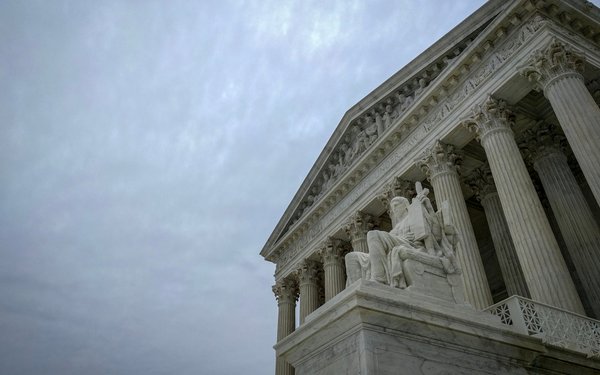
Facebook is
aiming to appeal a recent court decision that reinstated a lawsuit accusing the company of violating a federal robo-texting law.
The company said in recent court papers it plans to ask the
Supreme Court to review the ruling, which was issued last month by a three-judge panel of the 9th Circuit Court of Appeals.
“In light of the enormously consequential issues presented,
Facebook intends to seek review of the Duguid decision in the Supreme Court,” Facebook wrote in court papers filed with the 9th Circuit. (The company's statement came in a request to the 9th
Circuit to stay a separate robo-texting lawsuit.)
The appellate ruling stemmed from a class-action complaint brought in 2014 by Montana resident Noah Duguid, who alleged Facebook repeatedly
sent him unwanted text messages. Duguid, who apparently had been assigned a recycled phone number by his carrier, alleged Facebook repeatedly notified him via text that his account had been accessed
-- even though he never had an account with the service.
Duguid said he emailed Facebook with complaints about the texts, but the company persisted in sending them.
His lawsuit alleged
the messages violated the Telephone Consumer Protection Act, which prohibits companies from using auto dialers to send texts to consumers without their consent.
The Telephone Consumer
Protection Act defines auto dialer as equipment that is capable of storing and dialing numbers using a random or sequential generator. Judges across the country have struggled to figure out when
texting systems meet that definition, and they have arrived at different conclusions.
Facebook argued its texting system wasn't an auto dialer, because it didn't generate the numbers randomly,
but in response to information about a potential security breach.
The 9th Circuit disagreed, ruling that Duguid's allegations, if true, were sufficient to establish that Facebook used an auto
dialer to send him texts.
Facebook also argued to the 9th Circuit that the Telephone Consumer Protection Act violates the First Amendment, because the law exempts robo-texts aimed at
collecting debts owed to the government. Facebook said it's unconstitutional to impose different rules on companies engaged in debt collections than other types of communications.
The 9th
Circuit agreed that the Telephone Consumer Protection Act's exception for debt collectors is unconstitutional, but said the remedy is to remove that provision from the statute.
On Monday, the
government asked the 9th Circuit to reconsider that portion of the ruling. The Justice Department says the result of the court's decision “is to partially invalidate an Act of Congress without
affording any party meaningful relief.”
The government continues: “Facebook’s alleged misconduct has nothing to do with the government-debt exception, and the invalidation of
that provision does not save Facebook from suit.”
Facebook said in its recent court papers it will seek to appeal to the Supreme Court before the Sept. 11 deadline, but also expects to
support the government's request for a new hearing at the 9th Circuit. If the 9th Circuit agrees to reconsider its ruling, the deadline for appealing to the Supreme Court would likely be pushed
back.